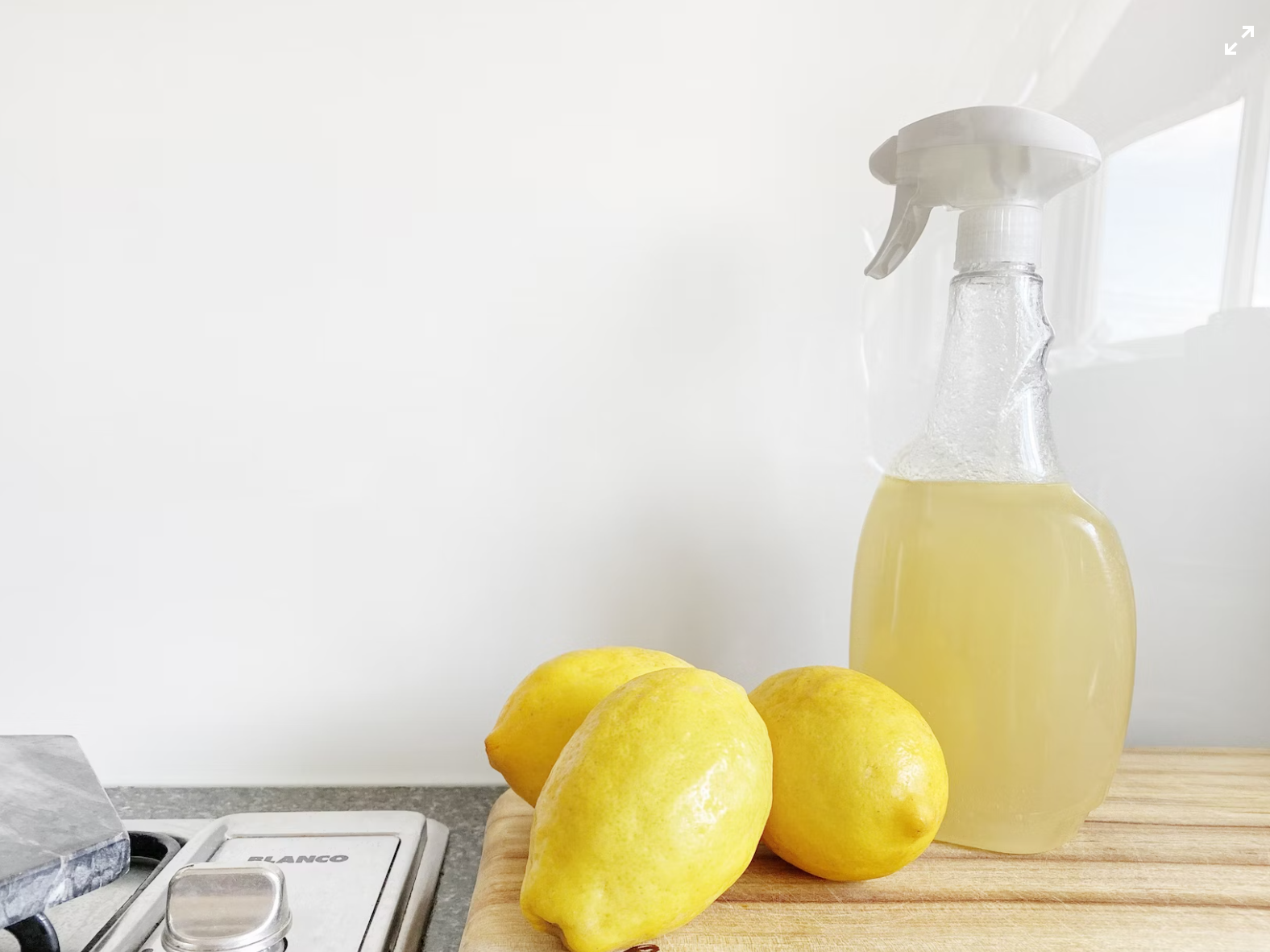Vinegar is a popular household cleaning staple thanks to its versatility, affordability, and cleaning power. But is vinegar actually safe to use if you have a septic tank?
In this article, we’ll cover:
- How septic systems work
- Risks of harsh cleaners
- Why vinegar is septic-safe
- How to use vinegar as a cleaner
- Other septic-safe options
- Signs of septic system damage
- When to call a professional
Understanding How Septic Systems Operate
To understand why vinegar is septic-safe, let’s first look at how septic systems work:
- Wastewater flows into an underground septic tank.
- Heavy solids sink to the bottom as sludge.
- Grease and lighter solids float to the top as scum.
- Bacteria naturally present digest and liquefy the solids.
- Clarified liquid flows out to the drain field.
- Sludge and scum remain in the tank for periodic pumping.
Maintaining the right balance of bacteria in the tank is crucial for proper breakdown of waste solids. Harsh chemicals can disrupt this balance.
The Risks of Using Harsh Cleaning Products
Many commercial cleaners contain potent chemicals aimed at disinfecting or removing stains quickly. While effective, these chemicals can damage septic systems when flushed down drains.
Potential risks include:
- Killing beneficial bacteria in the septic tank.
- Interrupting the waste decomposition process.
- Causing faster sludge buildup by harming bacteria.
- Allowing contamination if pathogens aren’t properly broken down.
Even antibacterial hand soaps contribute to bacteria imbalance over time.
Why Vinegar is Considered Septic-Safe
Vinegar, especially white distilled vinegar, has been used as a natural cleaner for generations. It has proven disinfectant abilities without the harsh chemistry of many commercial cleaners.
Reasons why vinegar is septic-safe:
- Made from all-natural fermented plants – no synthetic chemicals.
- Biodegradable and non-toxic.
- Acidity kills bacteria but won’t sterilize septic tank.
- Widely recommended by septic system experts.
- Can help break down grease and grime that cause clogs.
While vinegar has some antibacterial properties, it is mild enough that in proper dilution it won’t disrupt the bacterial balance in a septic tank when flushed.
How to Use Vinegar as a Natural Cleaner
Vinegar can be used undiluted for some cleaning projects, or mixed with water for milder cleaning strength. Popular uses around the house include:
-
Removing mineral deposits on showerheads, faucets, and drains.
-
Descaling kettles or coffee machine reservoirs.
-
Cleaning and disinfecting countertops.
-
Unclogging bathroom drains. Mix baking soda and vinegar and pour down drain.
-
Scrubbing tile and grout.
-
Cleaning windows and glass.
-
Whitening laundry by adding to wash cycle.
-
Freshening dishwasher by running empty cycle with vinegar.
Use it for gentle daily cleaning instead of harsh disinfectants. It can handle most household cleaning needs without damaging plumbing or septic systems.
Other Septic-Safe Cleaning Alternatives
While vinegar is a septic-safe choice, here are some other natural cleaning options:
-
Baking soda – Powdered alkali, acts as abrasive cleaner.
-
Lemon juice – Acid cuts grease, disinfects, and deodorizes.
-
Borax – Disinfects and deodorizes as a powder or in solution.
-
Castile soap – Made from vegetable oils, biodegradable.
-
Hydrogen peroxide – Disinfecting properties, breaks down quickly.
-
Essential oils – Strong antibacterial properties but environmentally safe.
Avoid conventional drain cleaners, chlorine bleach, ammonia, and other harsh chemicals whenever possible. Read product labels closely and research any cleaner before using if you have a septic system.
Signs of Septic System Damage from Cleaners
Watch for these warning signs of possible septic system damage from use of harsh chemical cleaners:
-
Foul sewage odors around drains or tank.
-
Slow draining fixtures.
-
Gurgling sounds from drains.
-
Plumbing backups.
-
Soft spots or soggy grass over the tank or drain field.
-
The need for more frequent septic tank pumping.
Any of these suggest your septic system bacteria may be compromised. Call a septic professional right away if noticed.
When to Contact a Professional for Septic Help
While vinegar and natural cleaners are smart for maintenance, be sure to call in septic experts right away if you experience:
-
Signs of damage as listed above.
-
A potential lapse in judgement involving harsh chemicals.
-
Sewage backup into the home.
-
A defective or damaged septic tank or drain field.
-
The need for repairs, replacements, or upgrades.
Don’t take chances with your septic system. At any sign of trouble, reach out to a professional septic contractor for assistance.
Vinegar and Natural Cleaners Are Septic-Safe
While vinegar has many uses in cleaning, its ability to avoid disrupting septic systems makes it especially well-suited for rural and cottage properties not on municipal sewer lines. Keeping beneficial bacteria happy prevents many septic headaches!
